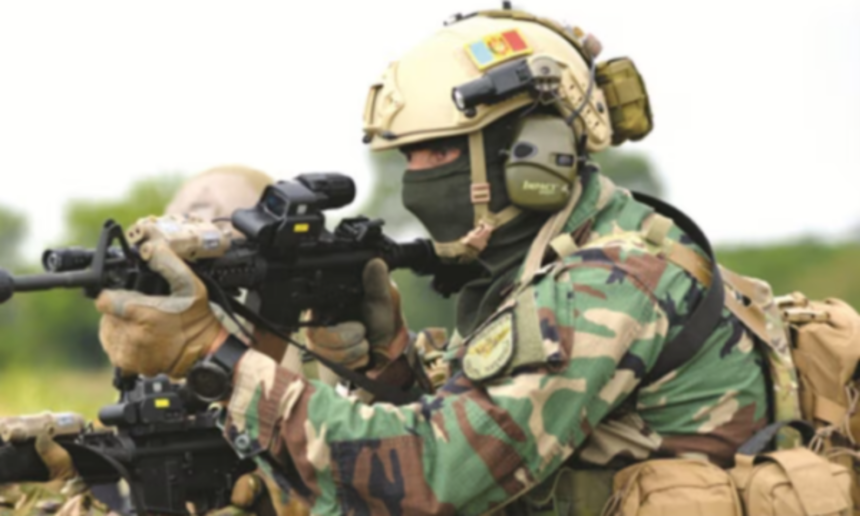The ambassadors of the European Union (EU) will give the green light on April 9 for the largest-ever lethal military aid package for Moldova, valued at 20 million euros.
This decision is significant as Moldova is a neutral country by constitution, and in the past, the EU has only provided what was considered “non-lethal” aid, such as military vehicles, air surveillance, and equipment for strengthening cyber security.
This changed last year when Brussels offered 9 million euros for short-range missiles for air defense systems.
Now, the EU is doubling that amount. This move reflects the sensitive position Moldova is in, due to an increasingly threatening and active Russia exerting pressure on countries wanting to align more with the West.
According to Radio Free Europe’s (RFE) proposal, this funding will be used to purchase “eight short-range air defense systems, consisting of approximately eight launchers and around 24 missiles.”
The document also notes that the implementation of this measure will be carried out by the Estonian Defense Investment Center, which also provided equipment to Chisinau last year.
The proposal emphasizes that “the proposed aid measure will enhance the performance and operational effectiveness of Moldova’s Armed Forces, replacing outdated Soviet-era equipment and/or creating new capabilities.”
Will Moldova Join the EU?
Moldova aims to join the EU within this decade, with accession talks expected to officially begin in the coming months.
The document highlights that the measures also aim to bring Chisinau closer to the EU, adding that the actions are being taken “to strengthen the Republic of Moldova’s capacity to participate in the EU’s Common Security and Defense Policy missions and operations, and to accelerate alignment and interoperability with EU standards.”
The approval of these measures comes just a week after the same EU ambassadors approved another financial aid package to complement the first one.
The second package, worth 40 million euros, is described by the EU as non-lethal military aid. Half of this amount will be used to purchase around 33 high-mobility tactical vehicles to replace old Soviet-era vehicles.
The remaining 20 million euros will go toward a short-range air defense integration system, which will essentially enable smooth operation of the launchers and missiles offered in the “lethal” package.
This total of 60 million euros represents the largest annual support given to the small Eastern European republic since Brussels began this type of aid in 2021.
The total amount since then will now reach 197 million euros, all under the European Peace Facility (EPF), a mechanism outside of the EU’s budget that has also allowed the EU to offer billions of euros in lethal aid to Ukraine since its full-scale invasion by Russia more than three years ago.
Is the U.S. Pulling Away from Moldova?
Another interesting aspect of the proposal is the possibility that the United States, under the new Trump administration, might withdraw from its active role in Moldova’s defense sector.
The document states that “in the past, the United States has been a major contributor in the defense field in Moldova, both in training and equipment support. Decisions from the new U.S. administration regarding future support are still pending.”
However, it is added that “according to a preliminary response from Moldova’s Ministry of Defense, a potential reduction in U.S. support for training would not affect the equipment provided under the EPF assistance measures.”
It is noteworthy that the EPF approval for Moldova passed smoothly, while discussions among EU working groups have continued without major obstacles.
This contrasts sharply with the EPF requests for Ukraine, which have been blocked by Hungary for nearly two years, and a new proposal for Armenia, which has also faced objections from Budapest. Hungary delayed the first-ever approval of EPF funds for Yerevan, worth 11 million euros, for several months last year before approving it, and is now repeating the same blocking tactic.
The new package, as seen by RFE, includes 20 million euros mainly for medical equipment for the Armenian Armed Forces. Like last year, EU diplomats say that Budapest is delaying approval, arguing that Azerbaijan, which has close relations with Hungary’s government led by Fidesz, should also benefit from similar aid. /REL







